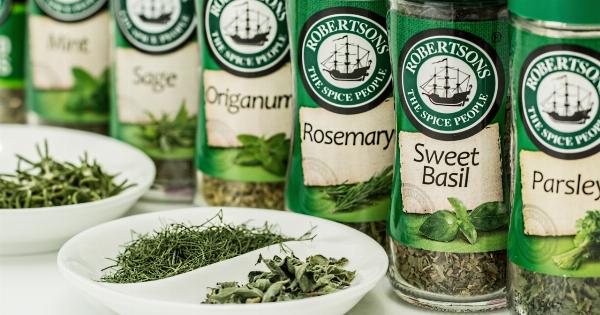When it comes to maintaining optimal kidney health, your diet plays a vital role. By making conscious choices about what you eat and drink, you can support your kidneys’ function and prevent various kidney-related complications.
In this article, we will explore the best foods for promoting kidney health and provide you with valuable insights into maintaining a kidney-friendly diet.
Understanding the Importance of Kidney Health
The kidneys are critical organs responsible for filtering waste products and excess fluids from the blood. They also help regulate blood pressure, produce red blood cells, and maintain electrolyte balance.
When kidneys function properly, they help keep your body in its best possible condition. However, certain factors like unhealthy eating habits, dehydration, genetic predisposition, and pre-existing health conditions can impair kidney function.
10 Best Foods for Healthy Kidneys
1. Red Bell Peppers
Red bell peppers are an excellent source of vitamins A, C, and B6, folic acid, and fiber. These vibrant vegetables are also low in potassium, making them a great addition to a kidney-friendly diet.
Furthermore, the high antioxidant content in red bell peppers can protect the kidneys from oxidative stress.
2. Cabbage
Cabbage is known for its low potassium content and high vitamin K and C levels. Incorporating cabbage into your diet can help support kidney health by providing necessary nutrients while keeping potassium levels in check.
Additionally, cabbage offers anti-inflammatory properties and may help reduce the risk of kidney diseases.
3. Cauliflower
Cauliflower is a versatile vegetable that can be an excellent substitute for high-potassium foods like potatoes or rice.
This cruciferous vegetable is rich in vitamin C, folate, and fiber, offering various health benefits such as reducing inflammation and supporting heart health.
4. Garlic
Garlic is not only a delicious addition to many dishes but also offers numerous health benefits. It contains a compound called allicin, which has been shown to possess antioxidant and anti-inflammatory properties.
Furthermore, garlic may help reduce cholesterol levels and blood pressure, protecting the kidneys from damage.
5. Fish
Fatty fish like salmon, mackerel, and trout are excellent sources of omega-3 fatty acids. These healthy fats can help reduce inflammation and decrease the risk of kidney disease.
Including fish in your diet also provides high-quality protein, offering an alternative to protein sources that are harder on the kidneys, such as red meat.
6. Olive Oil
Olive oil is a heart-healthy fat that can benefit your kidneys as well. Its anti-inflammatory properties help reduce the risk of chronic kidney diseases and protect against oxidative stress.
When using oil for cooking or dressing, opt for extra virgin olive oil to get the most health benefits.
7. Berries
Blueberries, strawberries, and raspberries are packed with antioxidants, fiber, and phytochemicals. These components help prevent inflammation and reduce the risk of various chronic conditions, including kidney disease.
Berries are also lower in potassium compared to other fruits, making them an ideal choice for a kidney-friendly diet.
8. Egg Whites
Egg whites are an excellent source of high-quality protein while being low in phosphorus, making them a kidney-friendly alternative to whole eggs.
Since excessive phosphorus can be harmful to individuals with impaired kidney function, incorporating egg whites into your diet can provide the necessary protein without adding extra phosphorus.
9. Apples
Apples are not only delicious but also rich in fiber and antioxidants. The fiber found in apples is soluble, which can help lower cholesterol levels and improve overall heart health.
Additionally, apples are low in sodium and high in potassium, making them a great choice for individuals with kidney issues.
10. Onions
Onions are a flavor-enhancing vegetable that offers both taste and health benefits. They are low in potassium and provide antioxidants that help reduce inflammation and protect against kidney damage.
Onions can be a valuable addition to a kidney-friendly diet and can be incorporated into various dishes.
Tips for a Kidney-Friendly Diet
While including the above-mentioned foods in your diet can promote kidney health, it is essential to consider additional factors for a truly kidney-friendly diet. Here are a few tips to keep in mind:.
1. Control Sodium Intake
Limiting sodium consumption can help manage blood pressure and prevent fluid retention. Avoiding processed foods and opting for fresher ingredients can significantly reduce your sodium intake.
2. Stay Hydrated
Proper hydration is crucial for kidney health. Drinking an adequate amount of water throughout the day can help flush out toxins and keep your kidneys functioning optimally.
3. Monitor Protein Intake
While protein is a vital nutrient, excessive consumption can burden the kidneys. If you have kidney issues, it is essential to consult a healthcare professional or dietitian to determine the appropriate amount of protein for your needs.
4. Limit Phosphorus and Potassium
Individuals with kidney problems may need to restrict their phosphorus and potassium intake. Some foods high in these minerals include dairy products, nuts, beans, and bananas.
It is best to work with a healthcare professional to create an individualized plan.
5. Avoid Excessive Alcohol Consumption
Alcohol can negatively affect kidney function, so moderate consumption is crucial. Excessive alcohol intake can lead to dehydration and damage your kidneys over time.
6. Maintain a Healthy Weight
Obesity and overweight can increase the risk of kidney disease. By adopting a balanced diet and incorporating regular physical activity, you can maintain a healthy weight and reduce the strain on your kidneys.
Conclusion
Your diet plays a significant role in supporting kidney health. Including kidney-friendly foods like red bell peppers, cabbage, fish, and olive oil can provide essential nutrients while protecting against chronic kidney diseases.
However, it is crucial to consider other dietary factors such as sodium, phosphorus, and protein intake for a fully balanced kidney-friendly diet. By making conscious food choices and following the tips provided, you can contribute to the optimal functioning of your kidneys and overall well-being.































